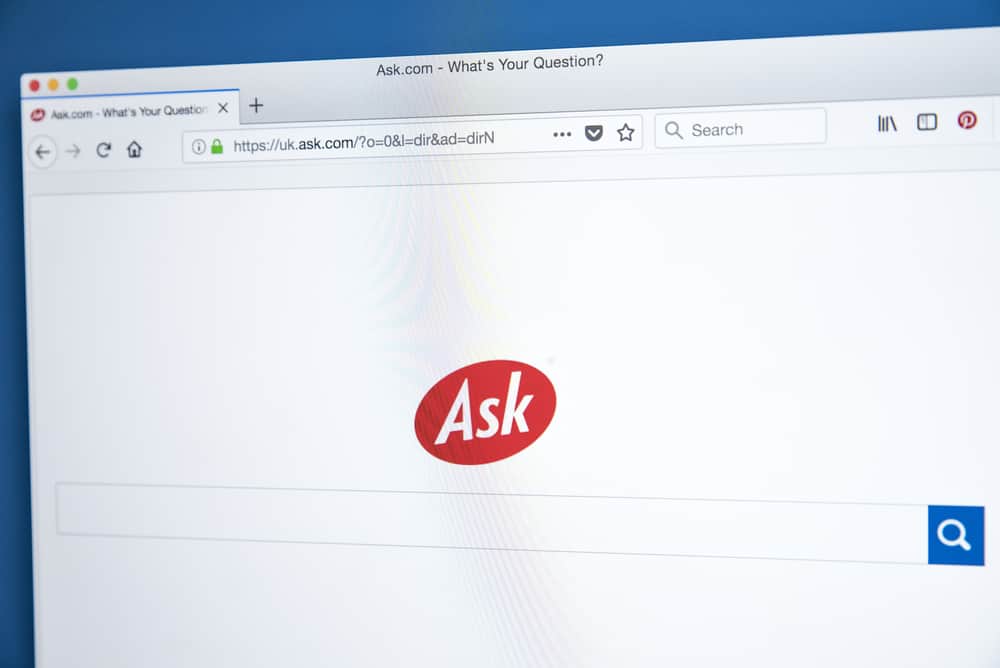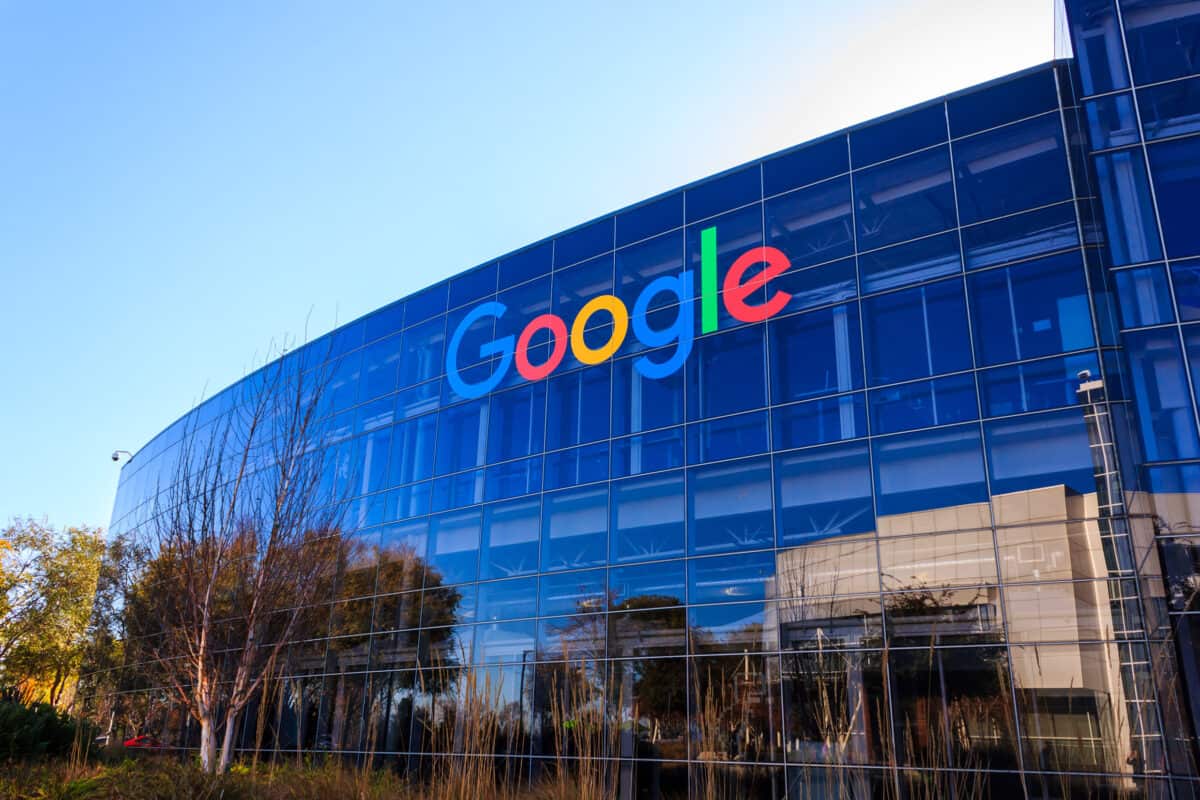Before Ask Jeeves failed, they were in the running to be as big as Google. Ask Jeeves even pre-dates Google by nearly two years. However, it failed less than a decade after it got off the ground. The company met a fate that befell other startups in the late 1990s and early 2000s met.
At the height of the dot-com bubble, startups and search engines had a rough time on the internet for. Unfortunately for Ask Jeeves, they simply couldn’t make it out alive.
Why did Ask Jeeves fail? Is it possible to track the company’s history and see why a firm with so much potential squandered everything in less than ten years? Are there lessons to learn from looking at rival search engines from Ask Jeeves’s time?
Let’s look at the history books to learn the real reason Ask Jeeves failed spectacularly.
Why Ask Jeeves Mattered
More than a year before there was Google, there was Ask Jeeves. Founded in June of 1996, Ask Jeeves reframed the public perception of search engines. Firstly, it reworked the way people searched the internet, moving away from keywords and emphasizing the natural way people asked questions in the real world.
Secondly, it made the search process more personal by introducing a friendly face: a gentlemanly butler named Jeeves. Ask Jeeves soared while Larry Page and Sergey Brin had just embarked on the research project that would eventually become Google.
Ask Jeeves based on the concept that searchers could ask the fictional Jeeves questions. Jeeves would then provide searchers with the answer they were looking for, complete with relevant search results. Today, more than 15 years after “Jeeves” was dropped, you still encounter people typing questions into search engines such as Google.
The Ask Jeeves style of searching the internet has outlived the search engine itself. This only further illuminates the impact of Ask Jeeves on the web. The site may be completely transformed now, but its legacy still endures.

©chrisdorney/Shutterstock.com
How Did People Feel About Ask Jeeves?
Ask Jeeves was perceived as a friendly, easy-to-use alternative to some of the more intimidating search engines on the internet at the time.
Because the world wide web was still relatively new to many, amateur users often found themselves scared off by the unexceptional, outright bland aesthetics of other search engines at the time.
Ask Jeeves made searching the internet, not unlike a game. It turned the simple act of search queries into a conversation between you and a fictional cartoon character whose entire existence hinged upon successfully finding answers to your questions.
Ask Jeeves heavily leaned into this titular character in its advertising. This only improved the way people felt about Ask Jeeves. From an enormous balloon in the Macy’s Thanksgiving Day Parade from 2000 to 2004 to the natural way that the site would provide answers to searches, Jeeves was like a real person to many.
It was an ingenious way to foster brand loyalty, not unlike Tony the Tiger or Ronald McDonald in the internet age. As such, when Jeeves’s phasing out began in 2005, Ask Jeeves loyalists genuinely felt a sense of loss at his forthcoming departure. He was honestly grieved.
Ask Jeeves Specs
| Founded | June 3rd, 1996 |
| Site Type | Question answering (QA) engine |
| Headquarters | Oakland, CA |
| Founder(s) | Garrett Gruener and David Warthen |
| Key Figure(s) | Douglas Leeds (CEO) |
| Dissolved | February 2006 |
How Ask Jeeves Failed: A Complete History
In 1996, just as Larry Page and Sergey Brin began conceptualizing the project that would soon become Google, two Californian capitalists were investing in a “next big thing” of their own. Garrett Gruener, a venture capitalist, and David Warthen, a seasoned entrepreneur, saw great potential in a proprietary software developed by a man named Gary Chevsky.
Chevsky’s software went against the grain of other search engines at the time. Instead of typing in keywords as you would traditionally do with a search engine, Chevsky’s software allowed users to type questions in natural, everyday English.
Together with others, Gruener, Warthen, and Chevsky built a website around the latter’s original software. They called it Ask Jeeves, with the titular Jeeves front and center on the site’s home page. He was a sophisticated, regal-looking man dressed in a sharp suit.
When you think of an old-timey butler, the image that comes to mind is likely not far off from the look of Jeeves. Heck, it might even be Jeeves if you ever used the site in its heyday.
In today’s terms, Ask Jeeves was like a hybrid of Apple’s Siri and Google’s search engine. Users would type their questions into the search bar beside the cartoon butler, click “Ask!” and await Jeeves’s answer. If the site could deliver an answer, it would be placed at the top of the search results alongside similar or related questions.
Below that, Ask Jeeves would list web pages and other relevant search results that pertained to the user’s question. It was indeed one of the first of its kind. Ask Jeeves seems all the more impressive considering just how basic search engines were at the time.
Early Signs of Imminent Failure
Ask Jeeves moved from development to the beta stage in April 1997 and was officially launched in June of that same year. Google was still more than a year away from even being founded, much less officially launched outside of Stanford University’s private network.
Ask Jeeves’s success was instantaneous, with continuous growth defining the remainder of the 1990s. Their rise mirrored Google’s, even as the two search engines operated in different corners of the same industry. Ask Jeeves was also on the come-up at the same time as Yahoo.
Anyone familiar with the internet and the late 1990s will tell you, something else was rapidly growing at that time: the dot-com bubble. Investors were pouring money into any and every internet startup they could find hoping to strike gold. This explains why Ask Jeeves had early backing from three huge venture capitalist firms: The RODA Group, Highland Capital Partners, and Institutional Venture Partners.
More investors flocked to Ask Jeeves when it went public on the New York Stock Exchange in 1999. Publicly, the site was nearing two million searches a day. Behind the scenes, higher-ups were making purchases of smaller companies to group with the Ask Jeeves software and perfect its search engine capabilities to better compete with Google and Yahoo.
At the same time, the Ask Jeeves ad department continued to lean into the Jeeves character. Jeeves was on everything from book and magazine covers to clothing to the aforementioned parade float. But money doesn’t grow on trees.

©IB Photography/Shutterstock.com
The Eventual Demise of Ask Jeeves
As it turns out, excessive spending and the bursting of the dot-com bubble do not pair well. By 2002, just a few years after their highly sought-after IPO, Ask Jeeve’s stock had fallen from a high of nearly $200 per share to under a dollar per share.
While Ask Jeeves went into panic mode, trying anything and everything to hold onto the novelty of Jeeves and the uniqueness of their search engine’s user experience. Google and Yahoo continued blazing forward in direct competition.
It wasn’t just the lack of funding, the bursting of the dot-com bubble, or the loss of novelty surrounding Jeeves that led to the site’s eventual demise. Part of Ask Jeeves’s failure has to how it channeled its efforts compared to its competitors.
While Google and Yahoo worked tirelessly to expand their offerings and supplement their search engines with additional features like email, navigation, and so on, Ask Jeeves continued to try and cling to the love users once had for its titular character. Meanwhile, Google and Yahoo kept their heads down and focused on technology.
After several attempted rebrands, an ever-rotating carousel of new faces and names in the board room, and even the elimination of Jeeves himself, the newly rebranded Ask.com site just couldn’t keep up anymore.
The site was sold to holding company IAC, came off the stock exchange, got rid of Jeeves, and relaunched its search engine to try and tap into the look and feel of Google or Yahoo. But it was too late. Ask Jeeves failed, and nothing could be done to salvage it.
Why Ask Jeeves Failed
As with the fall of any once-great titan, there’s no one factor to blame for the failure of Ask Jeeves. There’s no David and Goliath moment, no single stone that toppled the buzzy late-90s search engine. Ask Jeeves failed for a couple of reasons.
Money had a huge impact on the site’s failure. While they had plenty of cash at the start, the head honchos at Ask Jeeves wasted a lot of valuable venture capitalist funds on frivolous things like Jeeves merch and other software rooted in novelty than actually disrupting the search industry.
Ask Jeeves also faced cut-throat competition. Google and Yahoo quickly became embroiled in a search engine war, and while Ask Jeeves was a legitimate threat at the start, it soon became obvious that they wouldn’t be one for long. That’s because Google and Yahoo simply had the more advanced search engine software. Ask Jeeves could answer casual questions, but more complicated inquiries proved to be a problem.
Combine these factors with the never-ending stream of new talent coming in and trusted talent getting the boot. The panic that took hold of the Ask Jeeves team in the early-to-mid 2000s was simply too great to bear.
No person remained in a position of power long enough to implement real, meaningful change in the company. Before the new guy was out and another new guy was on his way in. Such ineffectiveness also explains why Ask Jeeves failed spectacularly.
How Google Succeeded Where Ask Jeeves Failed

©achinthamb/Shutterstock.com
Google had the better search engine software with a superior algorithm, which ranked results based on paid advertisers at the top of the page first and popularity second. They called it PageRank. A website’s relevance was determined by the total number of pages on the site and the total number of pages on other sites that linked back to the site in question.
Beyond this, Google had the better acquisitions. Ask Jeeves bought up smaller companies just like Google did, but their choices were not nearly as keen as they needed to be to remain a legitimate competitor. In the dot-com bubble era, one wrong expenditure could mean certain death.
For Ask Jeeves, that’s precisely the case. Instead of snatching up smaller engines, they should have done what Google did: Focused on things like email, navigation, news, ads, and more. It’s exactly why Google succeeded where Ask Jeeves failed.
Other Early Search Engines
Google is undeniably the most popular search engine in the world and has become synonymous with information searching. However, there were many companies similar to Ask Jeeves that also failed, but still led the way for our current system of automatic information searching.
- Infoseek: This search engine was launched in 1995, and was unique for involving human users in the website and result curation. It also featured early image and news searching.
- AltaVista: Launched in 1995 also, this company was the first commercial search engine and was known for being quick with its results.
- Lycos: This engine was actually released a year earlier in 1994, and it was the first one to offer both an index of other sites and a web portal with live results like news and mapping.
Up Next
- The Real Reason Compaq Failed Spectacularly — See what caused this manufacturing company to rise and fall within five years in the mid-1980s.
- Reasons Apple’s Bandai Pippin Console Failed — Do you know why The Pippin console failed so completely in the late 1990s? We delve into the details of why exactly this Apple product never took off.
- The Real Reason Gateway Failed Spectacularly — As the company continued rising in popularity its quality assurance standards began to dip, which ultimately led to the closing of Gateway.